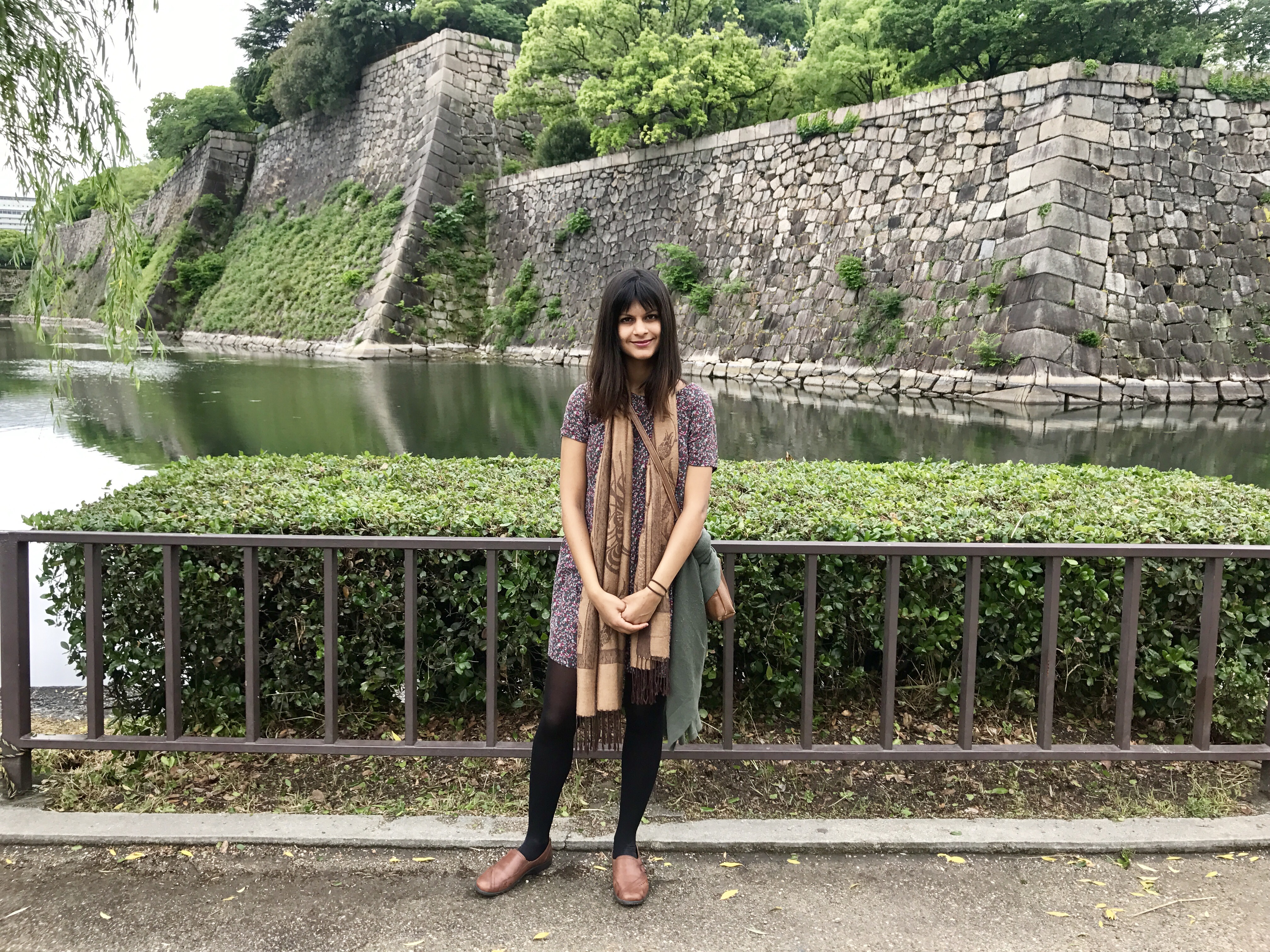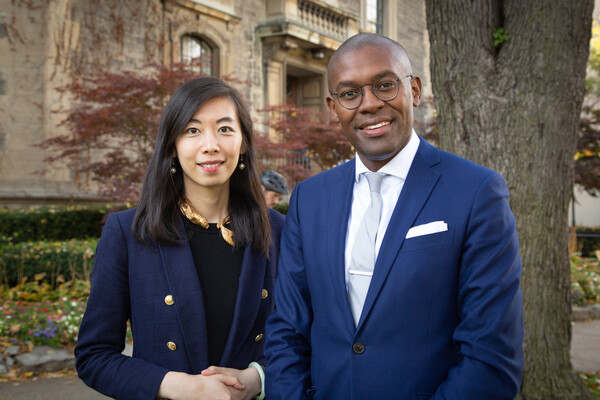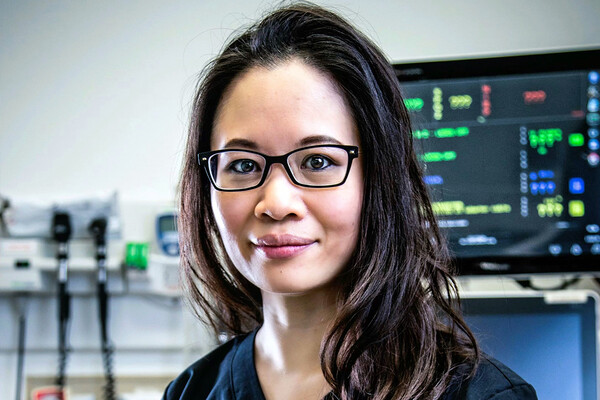Breadcrumbs
- Home
- MD/PhD Program
- News
- #UofTGrad17 Sumedha Arya: A Passion for Stories
#UofTGrad17 Sumedha Arya: A Passion for Stories

Heidi Singer

Sumedha Arya has a deep commitment to global health and to improving the care of marginalized populations. During her time at U of T, the Windsor, Ont. native worked to understand and promote the health needs of refugees and Indigenous people through various organizations. Advocacy came naturally to the former student journalist, and she plans to continue writing journalism as a way to keep raising awareness. Just before graduating with her M.D. June 6, she talked to writer Heidi Singer about what got her interested in social justice – and how she was able to fit it all in.
You’ve taken on a number of leadership positions in global health, AIDS and human rights. What sparked your interest?
Medicine has never been an end-goal in of itself for me - for a long time, I wanted to be a journalist. I worked as a student newspaper editor during my undergraduate degree, where I was compelled to see the world through various lenses and perspectives. My passion for hearing and sharing stories led me to appreciate the importance of the patient narrative, and to further grasp the wider social determinants of health that inform and shape unique narratives. I feel that we all have a role to play – however small or large – in striving for better outcomes for those who are most vulnerable. These are stories of inequity, and are stories that deserve not only to be told, but to be thoughtfully heard and understood. My experiences hearing others' stories, both clinical and non-clinical, have been at the crux of my motivation.
What was a highlight of this work for you?
Prior to my role as medical director of the University of Toronto International Health Program (UTIHP), I worked as a Resources, Education, and Advocacy for Community Health (REACH) coordinator for UTIHP. I sought to promote awareness of health issues faced by marginalized populations in Canada through initiatives aimed at both indigenous and refugee communities. I fostered community partnerships with the First Nations School of Toronto, Sojourn House, and the Christie Refugee Welcome Centre. I absolutely loved being on the ground getting to know our community partners, curating health promotion presentations, and working with diverse groups of individuals. It was our first year with the First Nations School of Toronto, and I particularly enjoyed receiving student feedback as well as receiving my own reciprocal education when graciously invited to partake in some of the students' daily activities.
How did you have time to do all this in medical school?
I tried to carve out time whenever I could – emails in between classes, meetings on campus while already studying at the library. My gmail calendar has been an organizational lifesaver in terms of keeping me on track on a day to day basis, and I found that keeping organized really helped me allocate time most efficiently. At the end of the day, though, I found that I really enjoyed and cared about everything I did – and that made me want to find time.
Where are you headed for residency and what are you going to be doing?
I will be pursuing Internal Medicine at the University of Toronto. I have the deepest gratitude towards the patients in the hospitals I have worked at for all they have taught me, and hope to serve them with great care in the years to come.
Are you interested in pursuing some of the same interests (i.e. human rights, global health) in your career?
Most definitely. I've mused a lot about exactly what shape this will take, and while I am not entirely sure I have some ideas. I was fortunate to become involved with global health research through the Harvard School of Public Health and the Lancet Commission of Global Surgery during medical school, which exposed me to some really interesting research concepts. I'd like to continue to explore the intersections of research, the medical humanities, and global health during residency with a focus on better understanding our own diverse internal medicine patient population here in Toronto.
What did you like best/worst about medical school?
One of the best parts about medical school was the people I met and the friends I made – there is definitely a bonding experience that occurs starting with that first dissection. My classmates challenged me to think and learn in new ways, and some of my fondest memories are with wonderful friends who shared in many of the experiences that I did. There's also a certain camaraderie that comes with parading around the country, suitcases in hand. One of the worst aspects for me was likely experiencing sickness during medical school, and trying to navigate that while managing other commitments.
What will you miss most about it?
Despite having been a student for a very long time already, I think I'll miss being entirely a learner. While we're still learners in residency, there's an entirely new level of responsibility – it's an exciting but scary prospect. While I can't wait to delve into this next chapter, I think I'll miss the scope of learning that occurs during clerkship as I'm not sure that I'll ever have quite as diverse a range of experiences across specialties again.
Any words of advice for current students?
My greatest piece of advice would be to be cognizant of your own privilege, to stay open-minded, and to always practice kindness and humility. We are incredibly, incredibly fortunate to be where we are and our patients come to us from a myriad of backgrounds, with open hearts in need. My advice would be to practice with empathy, to be wary of our own biases, and to remember the privilege that has brought us to where we are.
For the full schedule of #UofTGrad17 convocation ceremonies, visit http://www.convocation.utoronto.ca/events.
News


